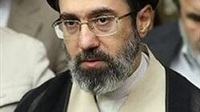Tunisia's Saied besieging Ennahda even more

Day after day, the decisions taken by Tunisian President Kais Saied, including the dissolution of the Muslim Brotherhood-controlled parliament and the sacking of the cabinet, prove to be prescient and correct.
On August 24, Saied extended the state of emergency in his
country for an unspecified period.
Meanwhile, the leader of Ennahda movement, the branch of
the Muslim Brotherhood in Tunisia, Rached Ghannouchi, sacked the members of the
Executive Office of his movement.
He justified the decision by saying it came against the
background of calls for restructuring the Executive Office of Ennahda.
"We will restructure the office in a way that copes
with developments in Tunisia to render it more efficient," Ghannouch said
in a statement.
Ennahda objecting
In its first reaction, Ennahda rejected President Saied's extension
of the state of emergency.
It said it considers the suspension of the parliament a
breach of the Tunisian constitution.
"This suspension is a blatant violation of Article no.
80 of the constitution," Ennahda said.
It warned against the ramifications of the move, noting
that such decisions herald an ambiguous future for the Tunisian state.
"Tunisians' constitutional rights are being violated
by these decisions," Ennahda said.
Saied has been working hard to mitigate the effects of
Covid-19 on his countrymen and also address his country's deteriorating social
and economic conditions.
He is also waging a brutal war against corruption.
Criticism from within, without
Ghannouchi chose to put his movement in order following the
decisions of the Tunisian president.
However, his response to the decisions is drawing criticism
from inside his movement and from outside it.
Ordinary Tunisians accuse the Ennahda movement leader of
staging a campaign of disinformation against the president and the Tunisian
state.









